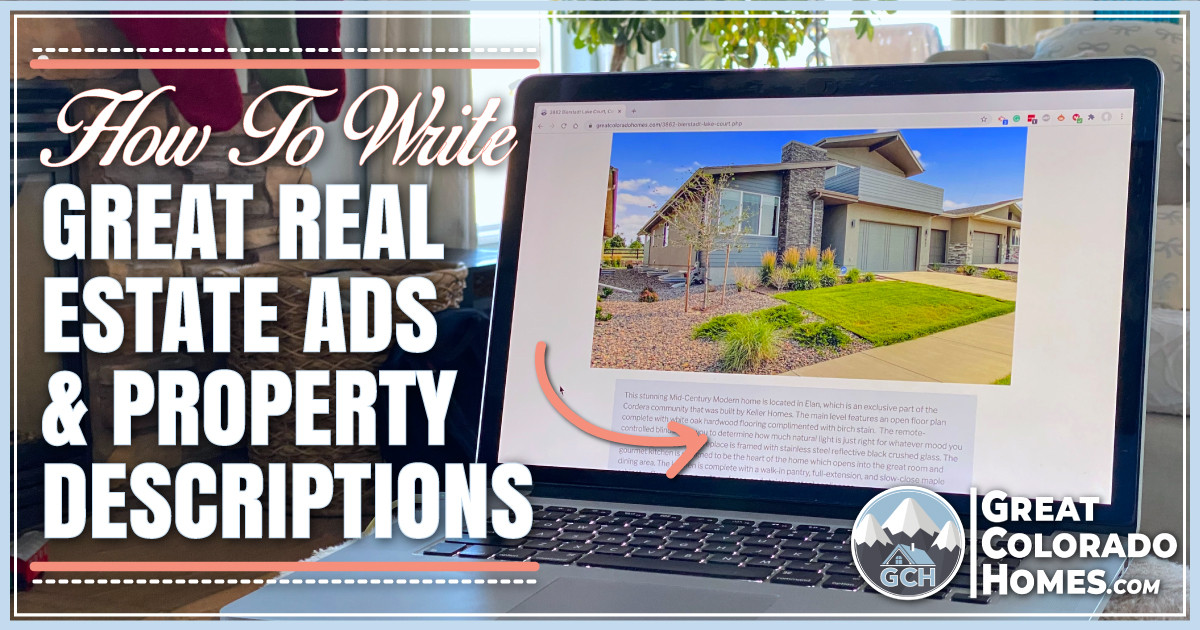
The most important question you should ask yourself when considering Florida's real estate licensing is "What education do I need?" This article will provide information about the required education for pre-licensing, as well as the time commitment. We also explain how to maximize the benefits of this education. We'll also discuss which courses are the most important, and what you should expect to pay as a result.
Pre-licensing education
Pre-licensing education is required before you can practice real estate in Florida. Pre-licensing education must be completed for at least 64 hours before you can apply and receive a license. The courses should cover the law, principles, real estate practice, and mathematics. Some courses will cost anywhere from $100 to $500. You must score 70% to be eligible for Florida license. Attorneys don't need to take pre-licensing classes. They can sit for the exam as a sales associate without a license.

There are many options for pre-licensing in Florida. You can either take the course online or visit a company in person. These courses may include self-paced courses that have practice exams. Others provide a variety study aids including textbooks and practice tests. You should ensure that you meet all state requirements. There are many online programs available that provide pre-licensing education for free.
Cost of prelicensing school
Pre-licensing education can cost anywhere from $100 to $1,000, depending on which state you are in. There are many factors that can explain this. The most common reason is the time and effort required to create real estate courses. Companies that produce these courses must pay their staff to keep the content updated and to keep pace with state legal requirements. These courses are not usually free and can be offered by title companies or brokerages. They are also longer and more complex than other courses.
Regardless of the state you live in, the cost of pre-licensing education to obtain a real estate license in Florida is worth every penny. A Florida real estate exam consists of 100 multiple-choice questions and the passing score is 75%. There are 45 questions related to real estate law and principles. 10 questions test your mathematical ability. If you do your homework, you can expect to get a score of 75% and higher.
Time required for pre-licensing education
An individual must have a Florida realty license and be over 18 years. They must complete at minimum 90 hours of prelicensing education. They must have a good moral character and must disclose any criminal convictions. If they are convicted of any felony, they won't be considered for a licensed real estate agent. They must also have their fingerprint cleared. After that, they will need to be approved online by their Broker and complete their continuing education requirements.

Applicants must be at least eighteen years old and have a social security number issued by the United States. Candidates must also have a high-school diploma. Real estate education is not necessary in Florida. However, having the right foundation can help you learn the ropes. Florida recognizes licenses issued by a few states such as Arkansas, Georgia Georgia, Illinois, Arkansas and Arkansas. Florida allows applicants to apply for licenses if they hold a realty license from one of the above states. Candidates from Arkansas Georgia Illinois Connecticut must take the state exam.
FAQ
What are the top three factors in buying a home?
The three most important things when buying any kind of home are size, price, or location. It refers specifically to where you wish to live. Price is the price you're willing pay for the property. Size refers how much space you require.
What should I consider when investing my money in real estate
The first thing to do is ensure you have enough money to invest in real estate. You will need to borrow money from a bank if you don’t have enough cash. It is also important to ensure that you do not get into debt. You may find yourself in defaulting on your loan.
Also, you need to be aware of how much you can invest in an investment property each month. This amount must include all expenses associated with owning the property such as mortgage payments, insurance, maintenance, and taxes.
You must also ensure that your investment property is secure. It is best to live elsewhere while you look at properties.
How many times do I have to refinance my loan?
This depends on whether you are refinancing with another lender or using a mortgage broker. In either case, you can usually refinance once every five years.
Can I buy my house without a down payment
Yes! Yes! There are many programs that make it possible for people with low incomes to buy a house. These programs include FHA, VA loans or USDA loans as well conventional mortgages. For more information, visit our website.
How much money do I need to purchase my home?
The number of days your home has been on market and its condition can have an impact on how much it sells. Zillow.com reports that the average selling price of a US home is $203,000. This
What should I do before I purchase a house in my area?
It all depends on how many years you plan to remain there. If you want to stay for at least five years, you must start saving now. If you plan to move in two years, you don't need to worry as much.
What are the drawbacks of a fixed rate mortgage?
Fixed-rate loans are more expensive than adjustable-rate mortgages because they have higher initial costs. If you decide to sell your house before the term ends, the difference between the sale price of your home and the outstanding balance could result in a significant loss.
Statistics
- When it came to buying a home in 2015, experts predicted that mortgage rates would surpass five percent, yet interest rates remained below four percent. (fortunebuilders.com)
- This seems to be a more popular trend as the U.S. Census Bureau reports the homeownership rate was around 65% last year. (fortunebuilders.com)
- 10 years ago, homeownership was nearly 70%. (fortunebuilders.com)
- Some experts hypothesize that rates will hit five percent by the second half of 2018, but there has been no official confirmation one way or the other. (fortunebuilders.com)
- This means that all of your housing-related expenses each month do not exceed 43% of your monthly income. (fortunebuilders.com)
External Links
How To
How to Manage a Rent Property
While renting your home can make you extra money, there are many things that you should think about before making the decision. We'll help you understand what to look for when renting out your home.
If you're considering renting out your home, here's everything you need to know to start.
-
What is the first thing I should do? Before you decide if your house should be rented out, you need to examine your finances. If you are in debt, such as mortgage or credit card payments, it may be difficult to pay another person to live in your home while on vacation. Check your budget. If your monthly expenses are not covered by your rent, utilities and insurance, it is a sign that you need to reevaluate your finances. It might not be worth the effort.
-
How much is it to rent my home? Many factors go into calculating the amount you could charge for letting your home. These include things like location, size, features, condition, and even the season. It's important to remember that prices vary depending on where you live, so don't expect to get the same rate everywhere. Rightmove shows that the median market price for renting one-bedroom flats in London is approximately PS1,400 per months. This means that your home would be worth around PS2,800 per annum if it was rented out completely. Although this is quite a high income, you can probably make a lot more if you rent out a smaller portion of your home.
-
Is it worthwhile? It's always risky to try something new. But if it gives you extra income, why not? You need to be clear about what you're signing before you do anything. Your home will be your own private sanctuary. However, renting your home means you won't have to spend as much time with your family. Make sure you've thought through these issues carefully before signing up!
-
What are the benefits? You now know the costs of renting out your house and feel confident in its value. Now, think about the benefits. Renting your home is a great way to get out of the grind and enjoy some peace from your day. It is more relaxing than working every hour of the day. Renting could be a full-time career if you plan properly.
-
How can I find tenants? After you have decided to rent your property, you will need to properly advertise it. Start by listing online using websites like Zoopla and Rightmove. Once potential tenants contact you, you'll need to arrange an interview. This will enable you to evaluate their suitability and verify that they are financially stable enough for you to rent your home.
-
How can I make sure that I'm protected? If you don't want to leave your home empty, make sure that you have insurance against fire, theft and damage. You will need to insure the home through your landlord, or directly with an insurer. Your landlord will typically require you to add them in as additional insured. This covers damages to your property that occur while you aren't there. If your landlord is not registered with UK insurers, or you are living abroad, this policy doesn't apply. You will need to register with an International Insurer in this instance.
-
Sometimes it can feel as though you don’t have the money to spend all day looking at tenants, especially if there are no other jobs. You must put your best foot forward when advertising property. Post ads online and create a professional-looking site. A complete application form will be required and references must be provided. Some people prefer to do the job themselves. Others prefer to hire agents that can help. Interviews will require you to be prepared for any questions.
-
What happens after I find my tenant?After you've found a suitable tenant, you'll need to agree on terms. If you have a contract in place, you must inform your tenant of any changes. You may also negotiate terms such as length of stay and deposit. Remember that even though you will be paid at the end of your tenancy, you still have to pay utilities.
-
How do you collect rent? When the time comes for you to collect the rent you need to make sure that your tenant has been paying their rent. You will need to remind your tenant of their obligations if they don't pay. You can subtract any outstanding rent payments before sending them a final check. You can call the police if you are having trouble getting hold of your tenant. They won't normally evict someone unless there's been a breach of contract, but they can issue a warrant if necessary.
-
What can I do to avoid problems? It can be very lucrative to rent out your home, but it is important to protect yourself. Ensure you install smoke alarms and carbon monoxide detectors and consider installing security cameras. Also, make sure you check with your neighbors to see if they allow you to leave your home unlocked at night. You also need adequate insurance. You should never allow strangers into your home, no matter how they claim to be moving in.